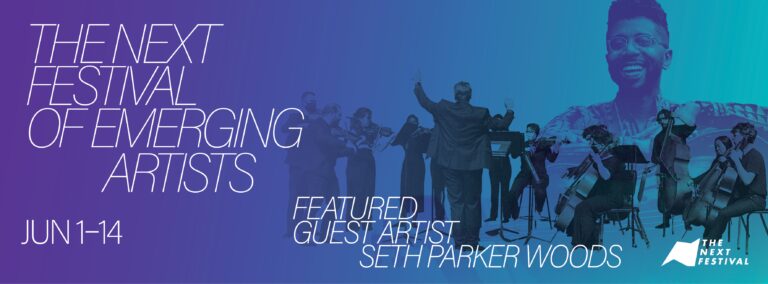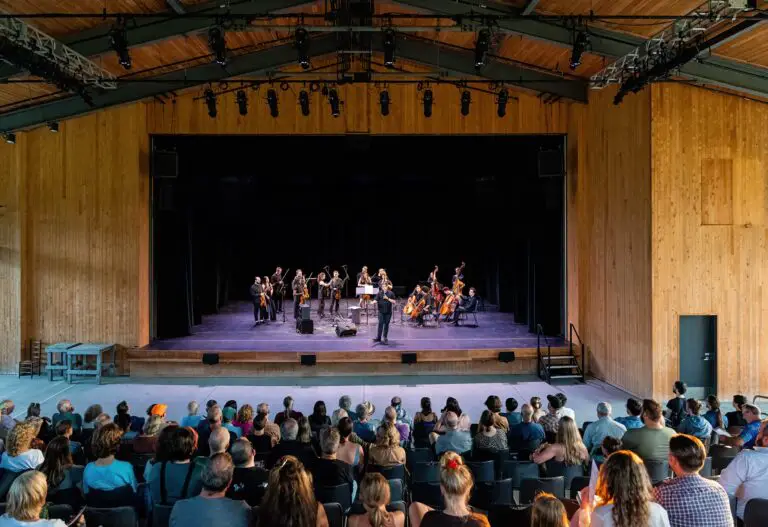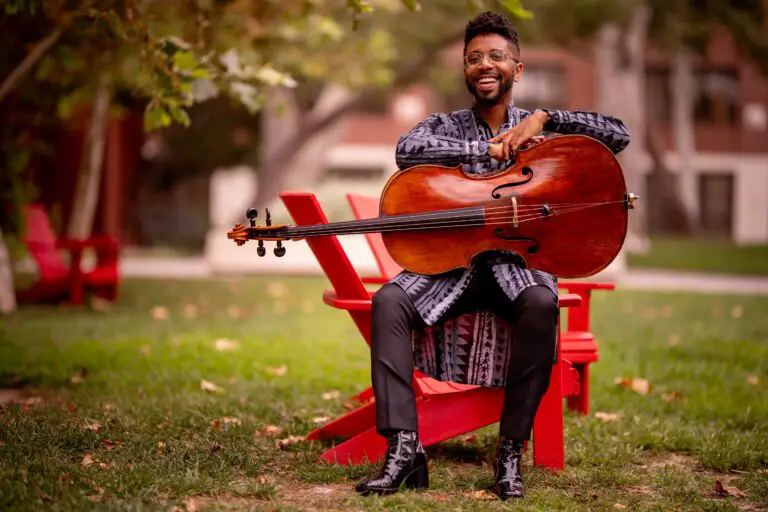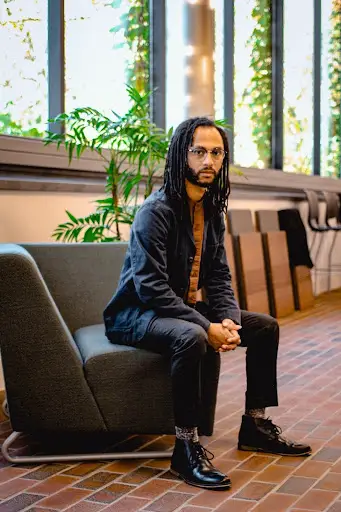The Next Festival of Emerging Artists, a trailblazing arts immersion program for early-career string musicians, composers, and choreographers, is launching its expansive 12th season from June 1–14, 2024.

The Next Festival of Emerging Artists, founded in 2013, provides 20 young string performers (ages 20-30) with a countryside residency, a New York performance tour, and a groundbreaking cross-disciplinary workshop with early-career composers and choreographers chosen by leaders in the field.
The Next Festival has supported more than 250 emerging artists. Collaborating directly with major composers and performing alongside leading soloists, Fellows dramatically expand their network. Festival alumni become working musicians, leaders, and socially conscious citizens. Past participants include performers with the Handel and Haydn Society, the Executive Director of Boston University Tanglewood Institute, and Le Concert des Nations, Malmo Symphony Orchestra (Sweden).
The Festival supports Fellows through a radical “pay-what-you-can” model, ensuring that talent can participate regardless of financial circumstances. The Next Festival commissions new compositions by established and early career composers, presenting over 75 guest artists since 2013, including Pulitzer, GRAMMY, and MacArthur award winners.

The Festival features nine premieres in two weeks by some of today’s most exciting composers, including Curtis Stewart, Michael Dudley Jr., Rebecca Saunders, and Next Festival Artistic Director Peter Askim.
Two-time GRAMMY nominee Seth Parker Woods, “a cellist of prodigious technical gifts and sharp intellect” (The New York Times), appears as the 2024 Festival Guest Artist. The artists participate in recording sessions of the newly-commissioned works and take part in multi-disciplinary collaborations with composers and choreographers, including Pulitzer Prize and GRAMMY-winning composer Aaron Jay Kernis, along with Peter Askim, and Choreography Mentor Sidra Bell.
Woods has collaborated with a wide range of artists representing the classical, popular music, and visual art worlds and has been nominated for two GRAMMY Awards, first in 2023 as a member of the celebrated new music ensemble Wild Up, and again in 2024 for his autobiographical solo tour-de-force, Difficult Grace (Cedille 2023).

On Friday, June 7, 2024, at 7:30 p.m. at PS21/Center for Contemporary Performance in Chatham, NY, and Saturday, June 8, 2024, at 7:30 p.m. at Merkin Hall at Kaufman Music Center in NYC, Peter Askim leads an orchestra of String Performance Fellows in a program of three new world premiere commissions: Essay #1: Leave the People by GRAMMY nominee Curtis Stewart, …there is yet beauty by ASCAP Award-winning Michael R. Dudley, and a new work by Askim.
The evening concludes with Herencia, a deeply personal ode to hybrid cultural identities by cellist Andrea Casarrubios and the East Coast Premiere of the wildly unpredictable Ire: Concerto for Cello, Strings, and Percussion by Rebecca Saunders with Woods as soloist.
Co-commissioned with the American Composers Orchestra and workshopped in 2023 EarShot Readings, Dudley’s …there is yet beauty is meant to evoke hope amidst chaos, within both the musicians and audience.

Curtis Stewart’s Essay #1: Leave the People takes the audience through a multi-part logical argument about the nature of academia in classical music: who is remembered, who is lauded, who is leading the way? Who is used and who is left behind, and does it matter? Stewart was inspired to write the piece after the lawsuits around affirmative action directed at schools. “So, I asked myself: What would American music be without Blackness? What would American conservatories be without blackness? What would American classical music be without blackness?” he said.
Andrea Casarrubios’ Herencia was commissioned by the Sphinx Organization and is the Spanish translation for both “inheritance” and “heritage.”
For this work, my inspiration was not a particular musical ‘heritage’ or genre; rather, it was the artists who would be playing it. I envisioned the remarkable musicians of Sphinx Virtuosi taking the stage to play this piece, and I thought of how each individual has trailing behind them a unique history of unfathomable complexity; an epic that they bring to bear in every moment of performance. I also imagined the way this collection of histories would one day coalesce with a shared intention to illuminate their world — your world — with music.
Andrea Casarrubios.
Askim’s new work is a study in emotional cross-currents – music that is at times unyielding and relentless, soaring and transcendent: breathless, cascading, exuberant, and complicated – but always in motion.
Saunders’ Ire (2012) is the last in a series of three-string works, exploring the sonic potential of a tiny fragment of sound, the trill. The composer says of the piece, “The sonic potential is pushed almost to breaking point, the bow revealing again and again the fast quasi-mechanical manic trilling sound that lies hidden beneath the surface of silence.”
The following week, young composers and choreographers at the beginning of their careers, selected by Aaron Jay Kernis, Sidra Bell, and Askim, are invited for workshops at Gibney Dance Studio in NYC. The Next Festival’s 2024 Choreographer, Composer and String Performance Fellows premiere new music and dance works in a free, public showing at the studio on Thursday, June 13, 2024, at 3:00 pm.
This is the culmination of a week-long workshop, consisting of rehearsals, collaboration, and spontaneous creation, aided by mentors Aaron Jay Kernis, Askim, and choreographer Sidra Bell. The composers will guide Composer Fellows in new music to be played by the Festival’s String Performance Fellows alongside new dance works supported by Bell. The workshop’s unique structure focuses on developing new languages to work across disciplinary boundaries, prioritizing processes rather than a finished product.
For more information about the Next Festival, visit here.


Comments are closed.